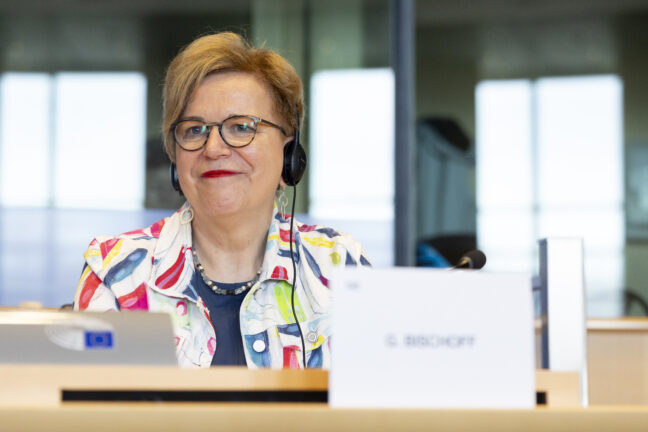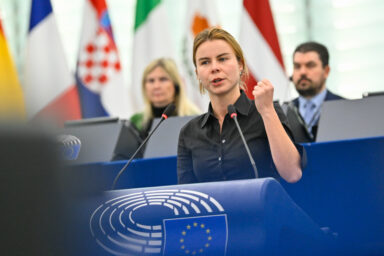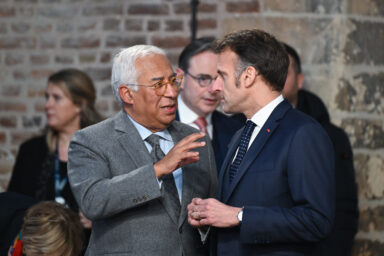The European Union’s proposed long-term budget has ignited a battle over its soul, pitting social ambitions against economic pragmatism. At stake is the future of the European Social Fund, a pillar of EU welfare policy since 1957.
Under the newly proposed Multiannual Financial Framework (MFF), the fund survives in name but risks erosion through decentralisation and reform-linked funding. Supporters insist it streamlines spending for an age of defence and industrial rivalry; critics warn this risks “dismantling social Europe”.
The ESF+ regulation, once a 40-page blueprint for tackling poverty and unemployment, now spans just 15 pages. Gone are binding targets, such as mandating three per cent of funds combat homelessness or child poverty. Instead, member states gain leeway to allocate 14 per cent of national-plan budgets to employment and social initiatives.
A fund undermined?
For 2021-2027, the plan would earmark €108bn—matching current ESF+ and Just Transition Fund levels. “Fourteen percent is not bad,” says Eulalia Rubio of the Centre for European Policy Studies, noting cohesion funds already align with this share.
Moreover, the percentage targets for social and climate issues are “a positive step towards anchoring sustainable and inclusive well-being in the EU budget,” says Danielle Brady, policy analyst from the European Policy Centre. This corresponds to the percentage of Cohesion Fund resources currently allocated to the ESF+ and the Just Transition Fund, she says.
You might be interested
European leftists, however, aren’t having it. The European Trade Union Confederation (ETUC) demands “guaranteed” social spending, fearing dilution. MEP Gaby Bischoff (S&D/DEU) lambasted the plan as “(European Commission President Ursula) von der Leyen’s dismantling of social Europe.”
The Roma Integration Network warns social investments may lose primacy to flashier projects. Even supporters concede risks. “The question is how the Commission can ensure governments spend on the right priorities,” admits an EU official.
Reforms, or red lines?
The Commission’s push to tie funds to reforms—echoing, to a degree, austerity-era conditions in Greece—has sparked alarm among those left of centre. Countries must negotiate national plans aligning with European Semester goals; e.g., for Germany this includes pension tweaks and rent-cap revisions.
(The MFF) is a positive step towards anchoring sustainable and inclusive well-being in the EU budget. — Danielle Brady, European Policy Centre
Berlin faces pressure to curb pension tax subsidies and incentivise longer careers. The Commission also critiques its rent freeze, warning strict controls “deter private investment.” Yet enforcement remains loose. “Larger countries like Germany or France have lots of negotiating power,” says Ms Rubio. Smaller, fund-reliant states may face tougher trade-offs.
Ms Bischoff retorts that an ESF+ “worthy of the name” needs clearer goals. Farmers and industry may gain, but “they, too, benefit from social spending“, noted MEP García Pérez Iratxe García Pérez (S&D/ESP).
Internal strife
Whether Brussels can balance these interests while navigating resurgent geopolitics will define the EU’s post-pandemic identity. With populists surging and Ms von der Leyen eyeing a second term, the budget battle is both technical and existential—a test of whether Europe’s safety nets can survive its age of crises.
The social fund will be defended by Parliament. — MEP Siegfried Mureșan (EPP/ROM)
Inside the Berlaymont, Socialists wage a rearguard action. Roxana Mînzatu, Commissioner for Social Rights, fights to “attach a price tag” to the ESF, binding governments to social outlays. She is outgunned: 14 EPP commissioners dominate the College, steering funds toward more urgent priorities.
Yet even EPP politicians concede ringfencing has merits. “The social fund will be defended by Parliament,” says Siegfried Mureșan (EPP/ROM), while stressing farmers shouldn’t “compete with transport or energy projects“.
No blank cheques
The Commission’s solution—lumping dozens of funds into national plans—aims to cut complexity. Payments would follow reform milestones, not preset allocations. Backers say this boosts flexibility; critics call it a “smokescreen” to shrink social and cohesion budgets. Ms Mînzatu’s plea for rigor faces headwinds as commissioners lobby fiercely for pet projects ahead of the July 16 proposal.
Currently, 25 per cent of children in the EU—almost 20 million—are at risk of poverty or social exclusion. — MEP Marit Maij (S&D/NLD)
In the European Parliament, left-of-center members swear they will resist. “We won’t give a blank cheque,” thundered Ms García, leader of the socialist faction, during the latest plenary debate. She branded the ESF’s marginalisation a red line, insisting competitiveness must not “leave behind social cohesion”.
MEP Marit Maij (S&D/NLD), Parliament’s rapporteur on the European Social Fund, said: “Currently, 25 per cent of children in the EU—almost 20 million—are at risk of poverty or social exclusion. We have set a goal to reduce child poverty by at least five million by 2030. To achieve this, a dedicated budget at an EU level is essential.“











